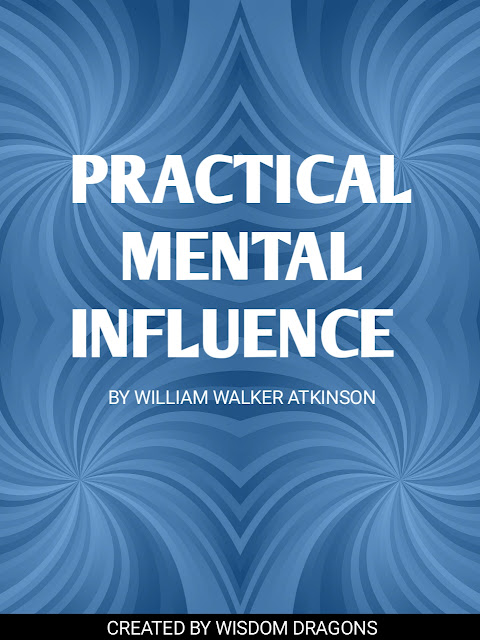THE RIDDLE OF LIFE/PART 11
CHAPTER
XI
STEPS
ON THE PATH
THE
normal course of human evolution leads man upwards, stage by stage. But an
immense distance separates even the genius and the saint from the man who
'stands on the threshold of divinity'—still more from him who has fulfilled the
Christ's command: 'Be ye perfect, as your Father in heaven is perfect Are there
any steps which lead up to the gateway of which it is written: 'Strait is the
gate and narrow is the way that leadeth unto life, and few there be that find
it'? Who are 'the perfect', of whom Paul the Apostle speaks?
Truly
are there steps which lead up to that Portal, and there are few which tread
that narrow way. The Gate is the Gate of Initiation, the second birth, the
baptism of the Holy Ghost and of Fire; the Way leads to the knowledge of God,
which is life in the Eternal.
In
the western world the stages, or steps, have been called: Purgation,
Illumination, Union; by those stages the mystic—who is rapt to the beatific
vision by devotion—denotes the Path. In the eastern world the Occultist—the Knower,
or Gnostic—sees the steps in somewhat other fashion, and divides the path into
two great stages, the Probationary and the Path Proper; the Probationary
represents the Purgation of the Mystic; the Path itself the Mystic's
Illumination and Union. He further seeks to develop in himself on the
Probationary Path certain definite 'qualifications', fitting him to pass
through the Portal which ends it; while on the Path itself he must wholly cast
away ten 'fetters', which hold him back from attaining liberation, or final
salvation, and must pass through four other Portals, or Initiations.
The
qualifications must each be developed to some extent, though not completely,
ere the first Portal can be passed. They are:
(1)
Discrimination: the power to distinguish between the real and the unreal, the
eternal and the fleeting—the piercing vision which sees the true and recognises
the false under all disguises. (2) Dispassion or Desirelessness: the rising
above the wish to possess objects which give pleasure or to drive away objects
which give pain, by utter mastery of the lower nature, and transcending of the
personality. (3) The Six Endowments, or Good Conduct: control of the mind,
control of the body—speech and actions—tolerance, endurance or cheerfulness,
balance or one-pointedness, confidence. (4) Desire for Union, or Love. These
are the qualifications, the development of which is the preparation for the
first Portal of Initiation. To these should the man address himself with
resolution, who has made up his mind to travel forward swiftly, so that he may
become a helper of humanity.
When
he has acquired sufficient of these so to knock at the door that it shall be
opened unto him, he is ready to pass over its threshold and to tread the Path.
He is initiated, or receives the 'second birth'. He is called among the Hindus
the Wanderer (Parivrajaka), among the Buddhists 'he who has entered the stream'
Srotapanna or Sotapanna: and before he can reach the second Initiation he must
cast off wholly the 'fetters' of Separateness — he must realise that all selves
are one; Doubt—he must know and not merely believe the great truths of Karma,
Reincarnation and the perfection to be reached by the treading of the Path;
Superstition —the dependence on rites and ceremonies. These three fetters
wholly cast off, the Initiate is ready for the second Portal, and becomes the
Builder (Kutichaka), or 'he who returns but once'. Sakadagamin; he must now
develop the powers of the subtle bodies, that he may be useful in the three
worlds, fitted for service. The passing through the third Portal makes him the
United (Hamsa, 'I am He'), or 'he who does not return'—save with his own
consent—the Anagamin. For the fourth Gate should be passed in the same life,
and for him who has passed that, compulsory rebirth is over. Now he must throw
off the fetters of Desire—such rarefied desire as may be left in him—and of
Repulsion—nothing must repel him for in all he must see the Unity. This done,
he passes through the fourth Portal, and becomes the Super-individual
(Paramahamsa, 'beyond the I') or 'the Venerable' (Arhat). Five are the filmy
fetters that yet hold him, and yet so hard is it to break their cobweb subtlety
that seven lives are often used in treading the space that separates the Arhat
from the Master, the Free, the Immortal, the Super-Man, 'He who has no more to
learn' in this system, but may know what He will by turning on it His
attention. The fetters are: desire for life in form, desire for life in
formless worlds, pride—in the greatness of the task achieved, possibility of
being disturbed by aught that may happen, illusion—the last film which can
distort the Reality. When all these are cast away forever, then the triumphant
Son of Man has finished His human course, and He has become 'a Pillar in the Temple
of my God who shall go out no more'; He is the Man made perfect, one of the
First-born, an Elder Brother of our race.
NEXT CHAPTER



Comments
Post a Comment